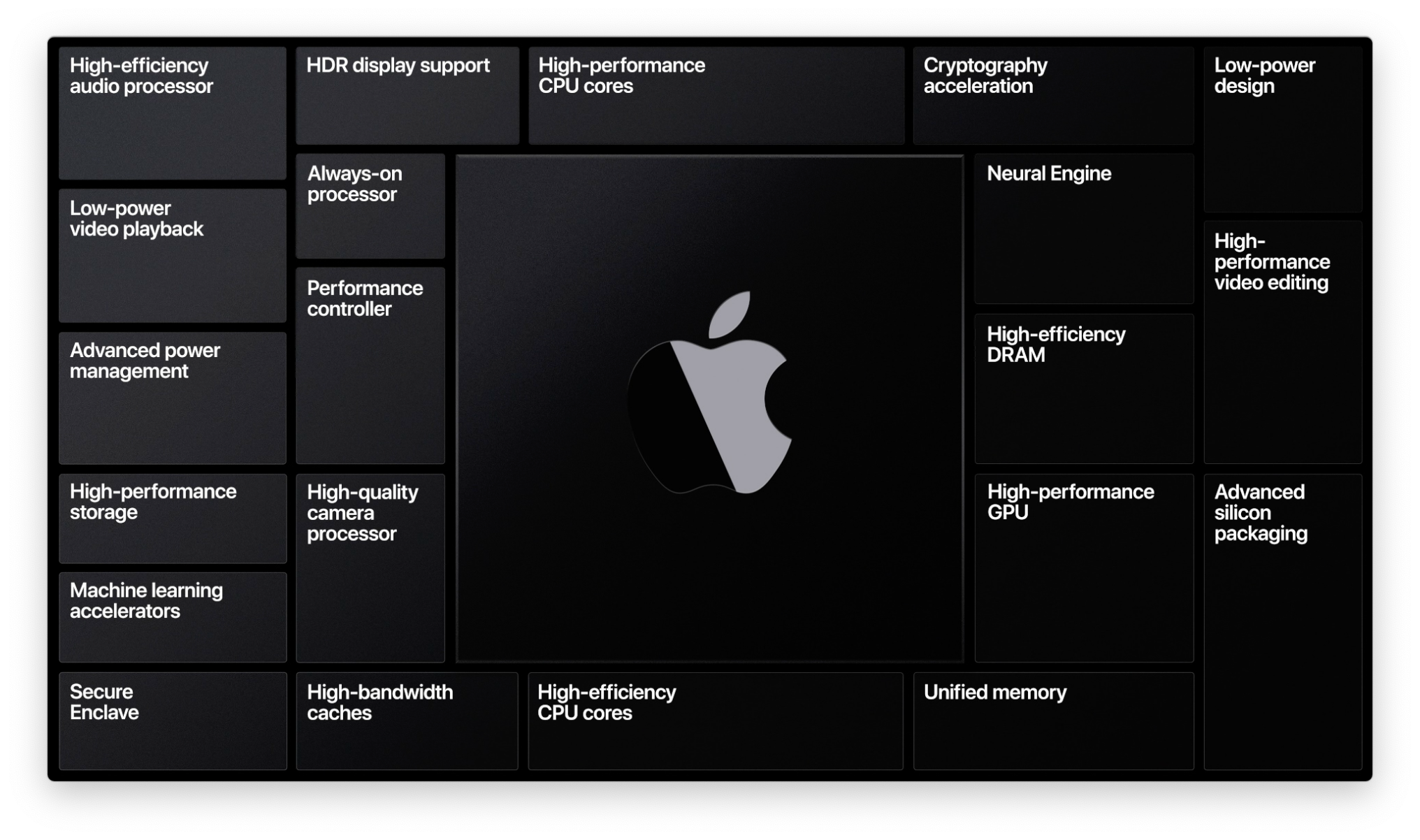The features I want in an Apple Silicon Mac

At next week's iPhone 12 event, Cupertino could also (finally) reveal the first Apple Silicon Mac. Little is known about the machine(s) that will be the first to transition from Intel to Apple processors. Regardless, here's what I hope we'll be seeing at next week's big announcement.
More than one
Switching from Intel processors on Mac is a big deal. As such, I'm hoping we'll see at least two Apple Silicon Macs announced during the online event. The three most likely candidates to become the first Apple Silicon Macs are a next-generation MacBook, a reimagined iMac, and a fresh Mac mini.
MacBook
The current MacBook lineup doesn't actually include any laptop named simply MacBook. Apple discontinued the last of these in 2019 when it released its first Retina display MacBook Air. Rumors, however, suggest a new 12-inch MacBook could be announced before the end of the year. If correct, this device is almost certainly going to get the Apple Silicon treatment. Whether the machine is ultimately called MacBook or becomes an extension to the MacBook Air family is open to debate. Regardless, this would be the first 12-inch Apple laptop in nearly two years.
- Imagining an Apple Silicon 12-inch MacBook Air
- Apple Silicon MacBook Pro: The ultimate portable powerhouse
iMac
Earlier this year, Apple released what could possibly be its final Intel-powered Mac, the 27-inch iMac (2020). And yet, Apple has yet to offer a 2020 update to the 21-inch model, which was last refreshed in 2019. There's also the iMac Pro that's begging for an update. The $5K+ machine hasn't seen an update in three years.
My gut tells me we'll see a smaller iMac arrive with Apple Silicon before an iMac Pro refresh. However, Apple likes to surprise, so anything could happen (it is 2020, after all).
- Apple Silicon iMac — Imagining the ultimate all-in-one
- An Apple silicon iMac reportedly get a custom GPU in the second half of 2021
Mac mini
The Mac mini would perhaps be the ideal first Apple Silicon candidate. However, the company already updated the device earlier this year, which makes another refresh less likely. And yet, Apple has a history of releasing new products in the spring only to replace them in the fall (hi, iPad 3), so you never know.
To reiterate, although it's less clear which Apple Silicon Mac will arrive first, here's hoping it's more than one. That way, consumers will have a choice and Apple will have an opportunity to explain what can be done with Apple Silicon across different types of Macs.
iMore offers spot-on advice and guidance from our team of experts, with decades of Apple device experience to lean on. Learn more with iMore!
Others
It's entirely possible we'll see an Apple Silicon-based MacBook Pro announced next week. However, most of the rumors until this point have mentioned a 2021 release date for these products, including a second-generation 16-inch MacBook Pro.
Ditch Intel to avoid confusion
When Apple Silicon was announced this spring, the company noted that Intel Macs would remain on the market for at least two years. This doesn't mean similar Apple Silicon and Intel-based Macs are going to coexist in the market, because they probably won't. For example, if Cupertino announces an Apple Silicon-based 21-inch iMac there won't also be a 21-inch Intel-based iMac that remains on the market. Otherwise, the company would be forced to compare and contrast, and probably confuse as a result.
Avoiding confusion is the main reason I suspect the first Apple Silicon-based Mac could be a redesigned 12-inch MacBook. With no MacBook currently on the market, no comparison is necessary. It could also be one of the reasons rumors suggest the 21-inch iMac could soon be replaced by an all-new 23-inch model. Again, Apple needs to avoid any confusion between the old and new.
Detail the switch
Moving to a common architecture across all Apple products has long been rumored. When fully implemented, Apple Silicon will mean developers can write and optimize their apps for the entire Apple ecosystem. For Mac, this starts with macOS Big Sur, which is almost certainly days away from being released to the public.
The new macOS update brings a range of technologies that make the transition to Apple Silicon as easy as possible. At the same time, Apple's offering translation technology using Rosetta 2, that will let the first Apple Silicon users continue to run existing Mac apps on their new machines.
We need to see all of this during Apple's presentation, and I expect that we will next week.
Price
Apple isn't known for offering cheap products and I don't expect anything to change on the first Apple Silicon products. Regardless, the big unveiling will at least answer the question about whether new processors mean less or more expensive devices, at least in the short-term.
Tick-Tock
You can follow the next week's event from the Apple website and through Apple TV. As usual, visit iMore often before, during, and after the event for full coverage. It begins on Tuesday, October 13 beginning at 10 a.m. PDT.
Questions?
Which type of Mac do you want to see have Apple Silicon first? A MacBook Pro? MacBook, iMac? Something else? Need a new iMac right now? Check out our favorites of the year ... so far.

Bryan M. Wolfe has written about technology for over a decade on various websites, including TechRadar, AppAdvice, and many more. Before this, he worked in the technology field across different industries, including healthcare and education. He’s currently iMore’s lead on all things Mac and macOS, although he also loves covering iPhone, iPad, and Apple Watch. Bryan enjoys watching his favorite sports teams, traveling, and driving around his teenage daughter to her latest stage show, audition, or school event in his spare time. He also keeps busy walking his black and white cocker spaniel, Izzy, and trying new coffees and liquid grapes.
